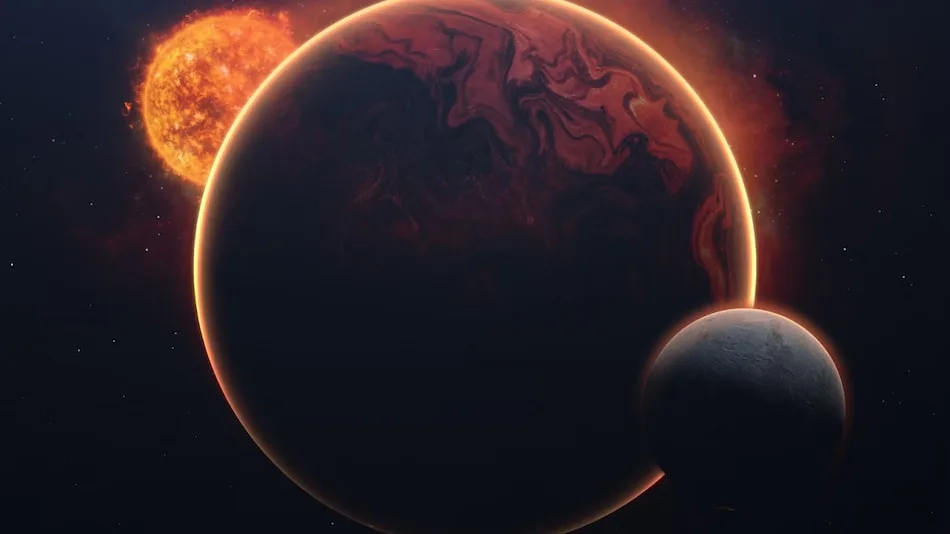Rocky Exoplanets May Be Holding Water in Deep Molten Iron Cores, Reveals Research
New research suggests rocky exoplanets may be more water-rich but less habitable than previously thought.

Photo Credit: Unsplash/Javier Miranda
Exoplanet TOI-270d, located 73 light-years away, has been observed with water vapour in its atmosphere
Highlights
- Exoplanets may hold 95 percent of their water in molten iron cores
- Larger planets pull more water into their interiors
- This could impact the habitability of water-rich worlds
New research suggests that rocky exoplanets, particularly those that have hosted or still host magma oceans, could trap significant amounts of water deep within their cores. Up to 95 percent of a planet's water may be sequestered within its molten iron core, rather than existing as surface oceans. This discovery shifts our understanding of water-rich worlds and their potential habitability, indicating that these planets may be more abundant in water than previously believed, but with most of it inaccessible.
Water Trapped in the Core
When planets form, they undergo intense heating, leading to the creation of magma oceans. During this stage, water dissolved in the magma can migrate towards the planet's core. Studies show that planets similar to Earth can pull this water downwards, but on larger super-Earths, this process could be even more pronounced. Computer models have revealed that on these larger planets, much of the water becomes locked within the core, absorbed by iron rather than remaining near the surface.
- Europe’s JUICE Jupiter Probe Successfully Completes Historic Lunar Flyby
Implications for Habitability
While water is essential for life, the fact that it's trapped so deep inside the planet makes it unreachable, posing challenges to potential surface habitability. However, the presence of water in the core could still play a role in a planet's overall habitability, perhaps affecting the planet's magnetic field or geological activity. The detection of water in an exoplanet's atmosphere might be an indicator that much more water is hidden within its interior, altering our search for habitable worlds.
- Mysterious Object Moving out of Milky Way at 1 Million Miles Per Hour
- NASA Might Have Spotted Highest Number of Sunspots in Over 20 Years
Example of TOI-270d
An intriguing example is the exoplanet TOI-270d, located 73 light-years away. Recent observations have detected water vapour in its atmosphere, suggesting the possibility that significant water may be trapped in its core. This finding highlights the need for further exploration of such planets, as the way water interacts within them could reshape our understanding of planetary habitability and the distribution of water in the galaxy.

